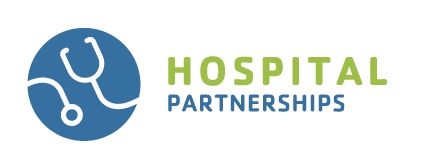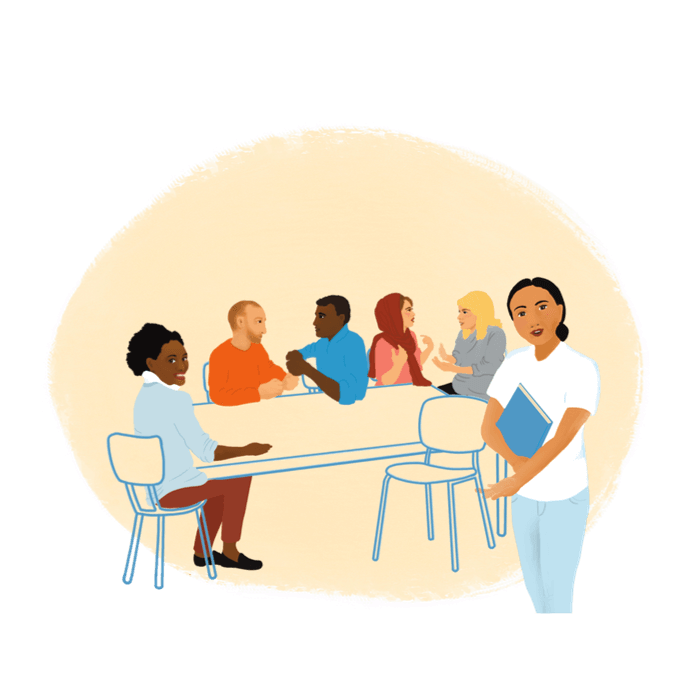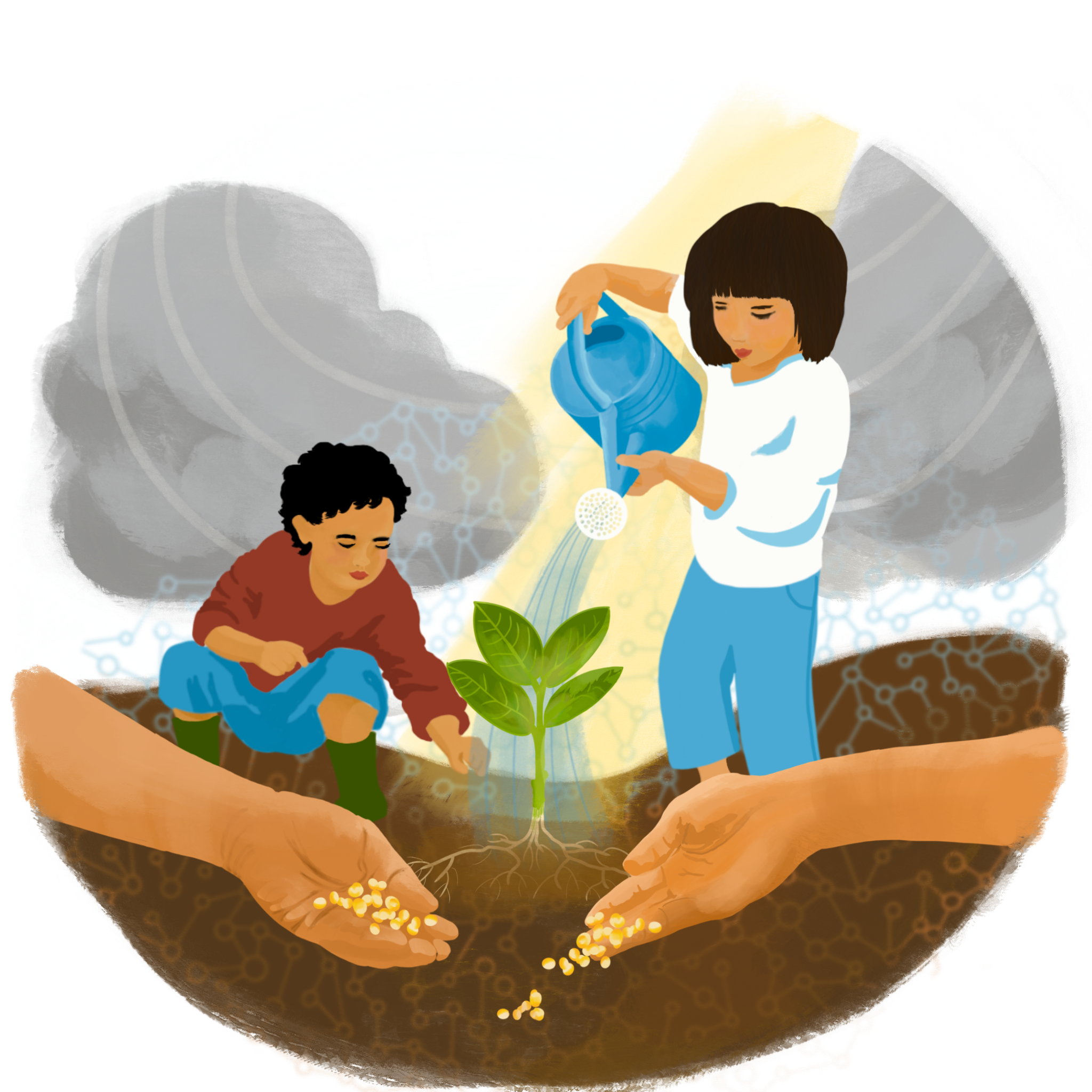#WEAREALONETOGETHER
Looking for new skills to cope with stress and build resilience?
Try our toolkit.
How’s staying home working out for you?
“All we need to do is stay home and keep a safe distance from each other.” It sounds so simple, but we can all feel the pressure. Pressure not to waste time, pressure not to lose our cool, pressure to ready ourselves for the future after Covid-19. Messages in our social media feeds like #stayhome and #flattenthecurve are meaningful and important, but they are also directives that can add to the stress we’re already feeling.
Whether we live alone and feel the impact of social isolation, or are facing the challenge of reorganizing our daily lives and avoiding conflicts as families confined to small spaces, our campaign #wearealonetogether is meant to provide a space where you are free to discover ways to manage stress – or simply to observe and learn from others.
On these pages, we offer ideas and tools that can help you and your community through this challenging time. Just take a moment to breathe, to relax, to experiment with our toolbox alone or with friends and family, or just take away some ideas about what helps us, as humans, adapt to this new situation.
COMMUNITY
For quite a while now, we’ve all been working together to flatten the curve by staying home as much as possible. For many of us, worries about our futures and those of our loved ones weigh heavy. Fear of losing income and other necessities may add to the burden many of us are feeling. This can make it hard to keep the “stress curve” as low as possible – individually, and in our relationships. And yet, this is a time when our wellbeing depends more than ever on how well we work together.
There is no quick solution to the current situation. But there are actions we can take to reduce anxiety and stress that can
have a big impact on how well we get through this crisis, both individually and as communities.
We’ve been seeing so many great examples of people working together to secure wellbeing. They show how resilient our society is. We want to contribute with knowledge and tools from our Community Resilience Network. Over the past three years, we’ve been doing resilience workshops with people in Hamburg and beyond. They have taught us so much about what community resilience means. And now, we’re happy to be able to share this knowledge with you, with heartfelt gratitude towards all those who have helped along the way.

Let's be alone together!
WHAT IS RESILIENCE?
When we humans are faced with extraordinary stress, “egoistic” or aggressive behavior can be a natural response to extraordinary conditions. Another typical reaction is to worry a lot about other people. And some of us might not even show that we are feeling stressed at all. We all react individually. And just as we all respond to stress differently, each of us has our own way of “doing resilience”.
Resilience is the ability to react flexibly under stressful conditions, and to continue to grow once the situation has passed. We consider resilience less as a fixed, individual trait than as a dynamic capacity that depends on our environment and our relationships. Resilience is something that everyone has, even in the most challenging of times. It can be easy or difficult to access our resilience, depending on what we are faced with. Trust in both ourselves, and in others, is key.
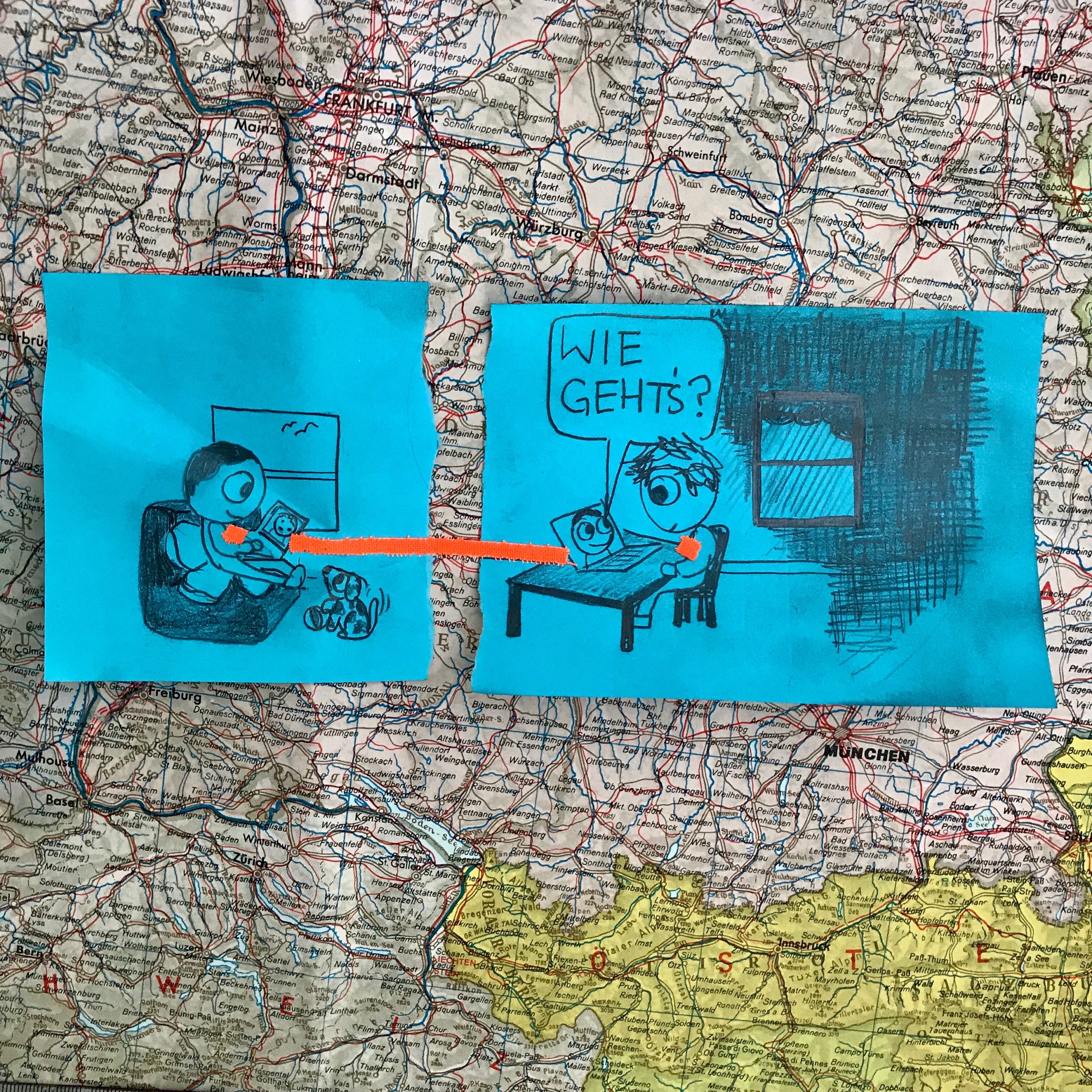
COMMUNITY RESILIENCE
In times when we have to tolerate much more insecurity and stress than usual, relationships play an important role for our mental health. Belonging to a community and knowing that we can both help and depend on others gives us a much-needed sense of safety. This is actually a hardwired instinct that has helped us evolve as a “social species”. We thrive best in groups – for better and for worse.
Community resilience grows in our close, personal relationships, but also in our everyday interactions with our social and physical environment, for example how we interact with people at the supermarket and how we use public spaces like streets, libraries and parks. Thanks to the conveniences of modern life, it’s easy to forget how strongly connected individual and community wellbeing are. The pandemic has been a stark reminder. When many of the everyday relationships that shape our social lives can’t take place as usual, and everyday interactions may be perceived as potentially dangerous, it can take extra effort to maintain our sense of belonging.
Even if we need to keep physical distance, it is extremely important to stay connected with others. Depending on how easily we can access our resilience – and this can change from day to day – it’s easy to feel disconnected, or less able to reach out to others than usual.
This is why we want to contribute to strengthening resilience in ourselves, and in our interactions with others. By having more conversations about resilience, we can all raise awareness for the critical role of mental wellbeing. Our hope is that this can help buffer the increased risk for mental illness that arises from mass events like the current pandemic.
gratitude
Realizing how much our comfort and safety depends on other people’s work can fill us with gratitude. Each of us is sure to have examples for how others have helped us, or how we have helped others in difficult times. Did you now that it is impossible to feel gratitude and anger or fear at the same time? If you’d like, try it and see for yourself!
Gratitude is one of our healthiest emotions. When we feel grateful, our bodies release “happiness hormones” that help us reduce stress.
Is there anyone in your life that you feel gratitude towards? The cashier at your supermarket, the postman, a family member or a friend? Many people also feel a deep sense of gratitude when they think about their spiritual beliefs. In a quiet moment, maybe you can take the time to think of someone in your life with gratitude. When you do, you can try to notice any changes that might happen on the inside!
A little preview:
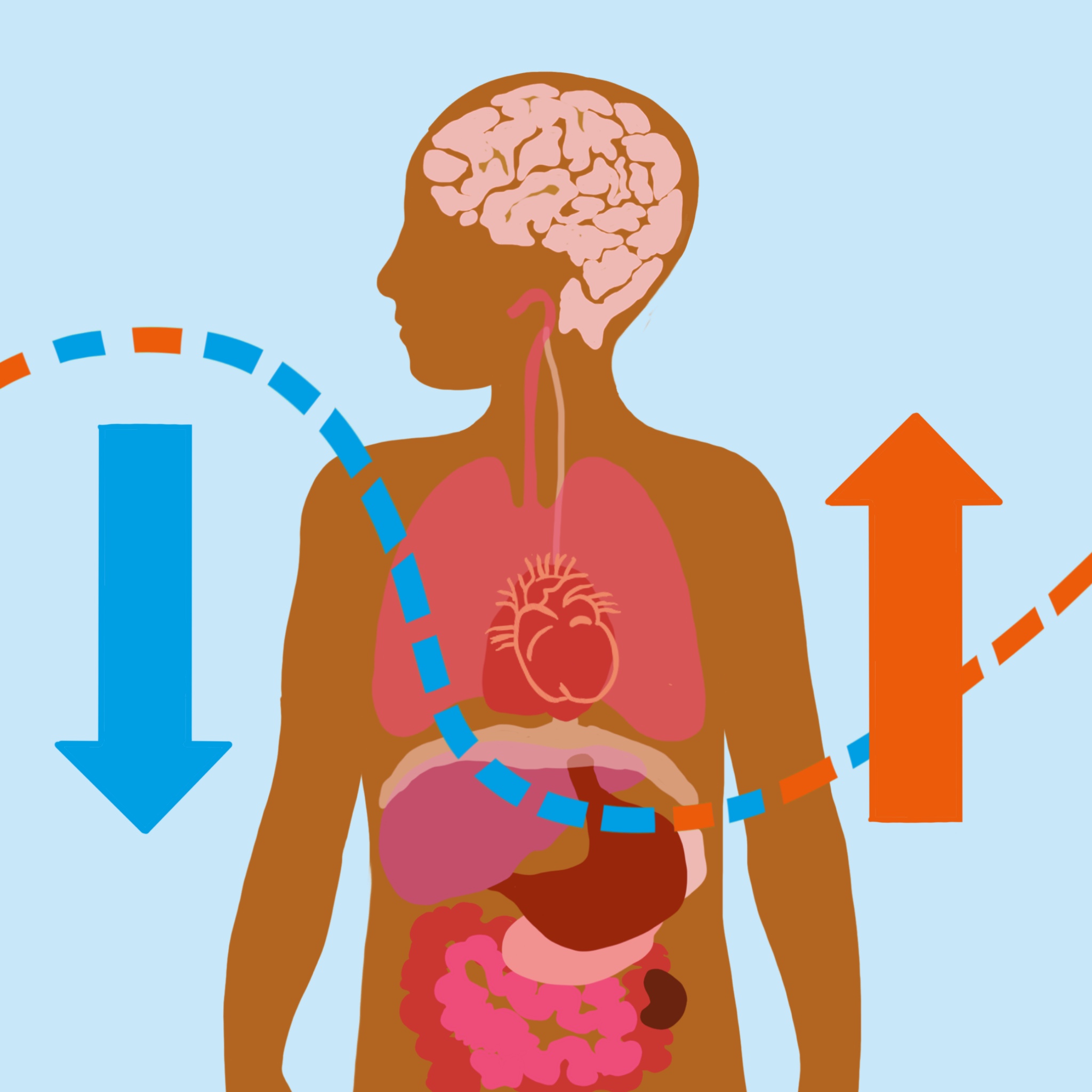
Mental health: it’s not just in our heads
Depending on our experience and values, we all have different ideas about what mental health is. What we all have in common is a body that responds similarly to stress and wellbeing.
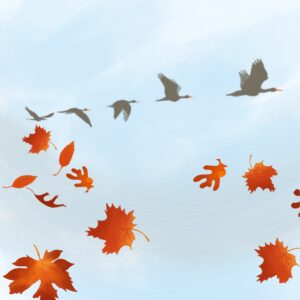
Kapitel 6: DIE ZEIT FLIEGT, LÄSST ABER IHRE SCHATTEN ZURÜCK
Heute sitze ich lächelnd an meinem Schreibtisch und verfasse meinen
abschließenden Bericht. Dieses Lächeln entsteht, wenn ich an die wunderbaren Erlebnisse der letzten Wochen denke, an die großartige Zeit, die ich bei Coreszon verbracht habe.

Kapitel 5: VERBINDUNGSMENSCHEN – DIE HERZSCHLÄGE VON CORESZON
Während wir an diesem Tag in unserer Team-Sitzung produktiv arbeiteten, gemeinsam lachten und Anekdoten austauschten, tauchte eine Frage auf, die mich
nachhaltig beschäftigen sollte. Diese Frage sollte bald an die Teilnehmer unserer Workshops weitergegeben werden. Die Frage lautet: “Was genau meinen wir, wenn wir von Verbindungsmenschen sprechen?”
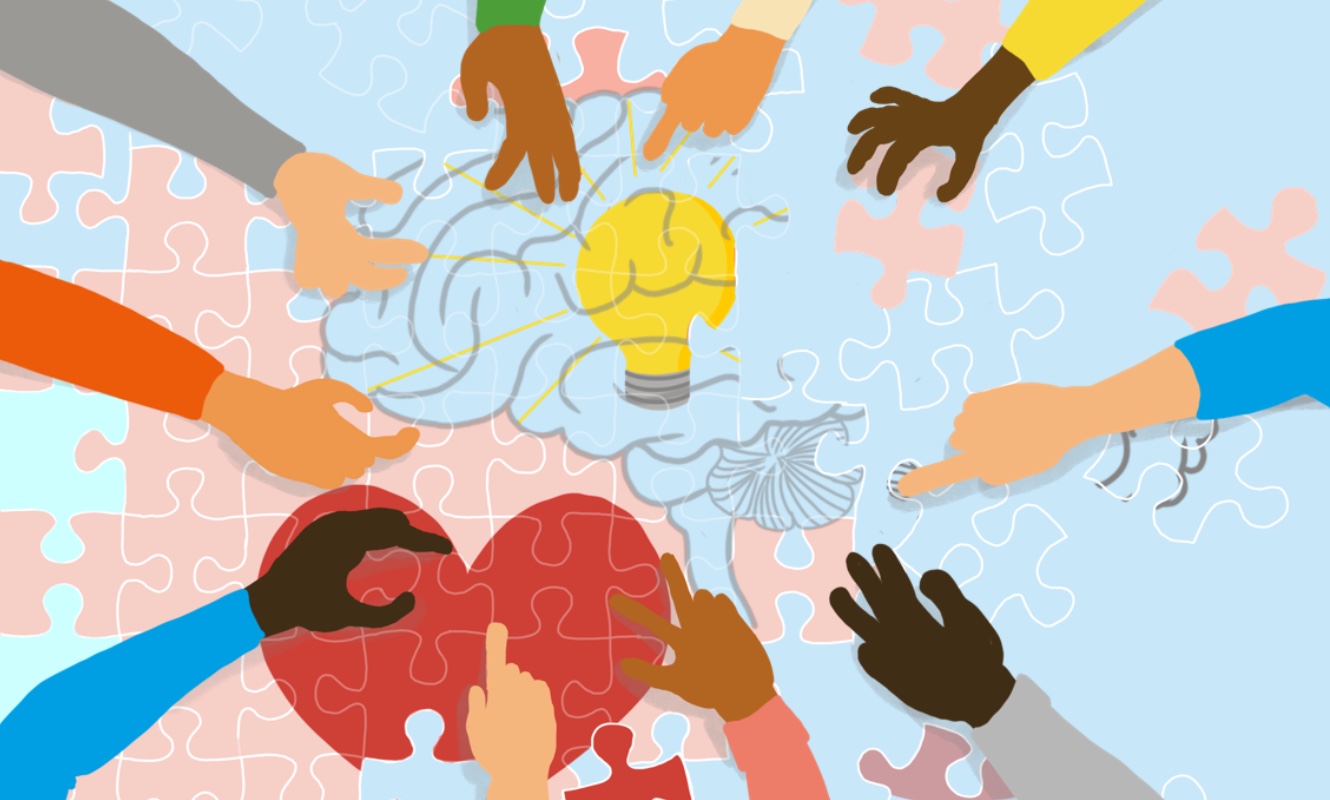
Kapitel 2: WERTVOLLE EINSICHTEN
Manchmal kommt alles anders, als man es erwartet – ein Spruch, der unsere Arbeit bei Coreszon perfekt beschreibt und unsere Team-Flexibilität unterstreicht. Dies wurde in der vergangenen Woche besonders deutlich.



